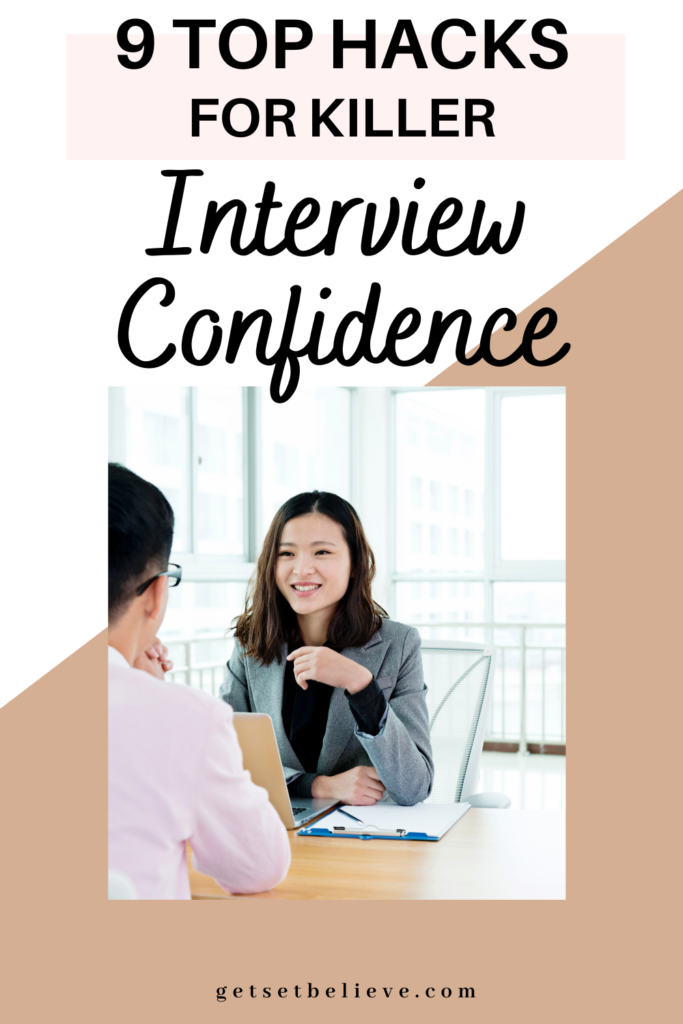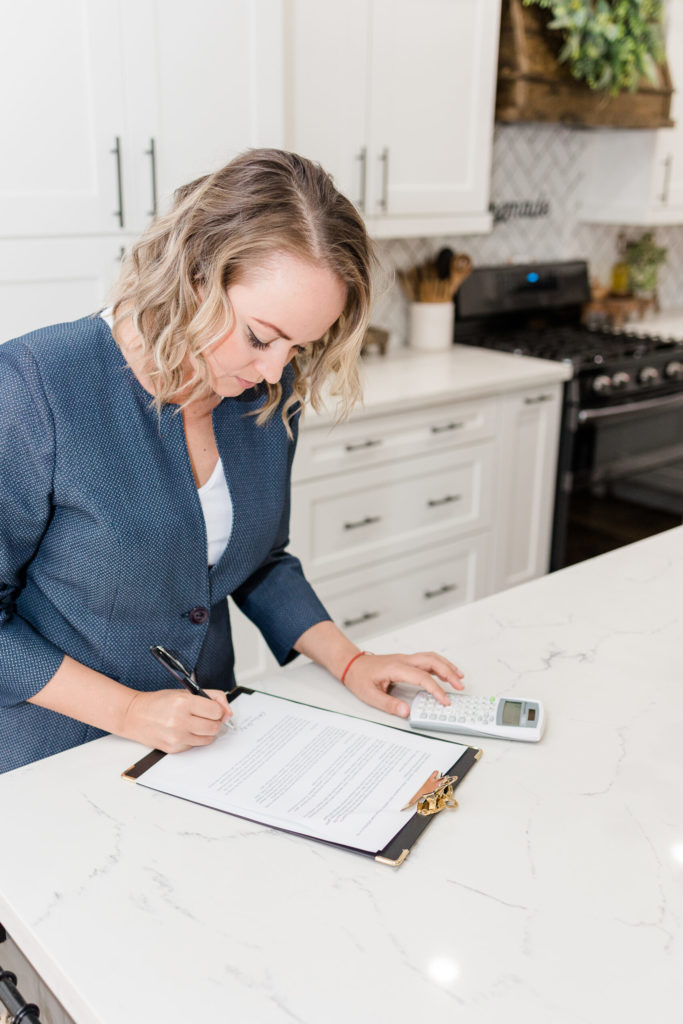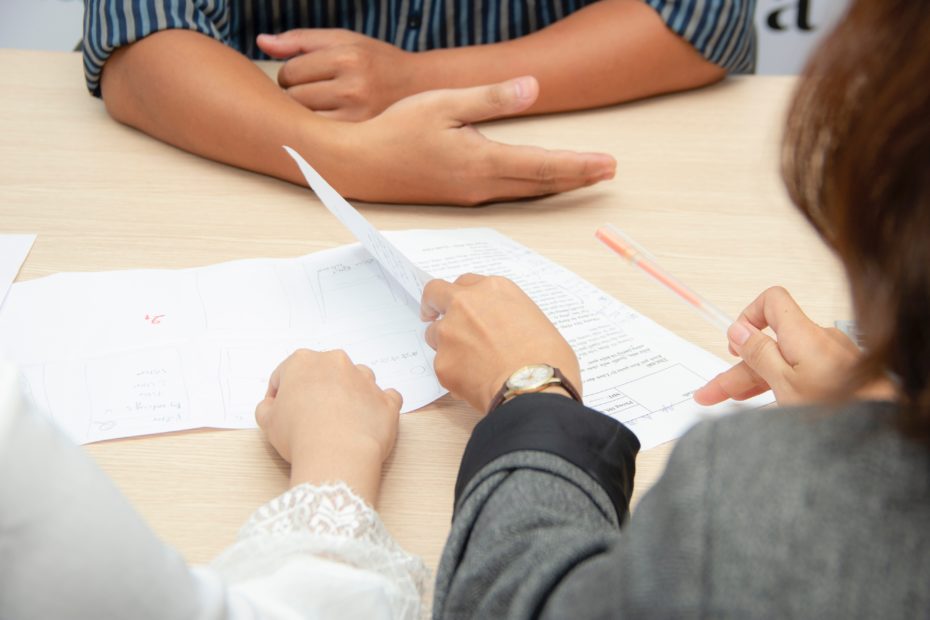I’ll let you into a little secret, despite working in human resources for many years and recruiting hundreds, if not thousands of people, my own interview confidence was often pretty poor.
I’d prepare fully (or so I thought) but then once I was in the interview itself my palms would sweat, my voice would tremble and I would give short monotone answers. I’d feel rubbish and as though the panel were totally judging me.
Obviously, they were, to an extent.
At the end of the day, interviews have to contain an element of judgment in order to decide who is the best person for the job.
However, they weren’t judging me in the way that I thought.
Exit 'Mumbling Minnie'
Those poor interviewers who got mumbling, sweaty Minnie in front of them (aka me) genuinely wanted me to do my best. They wanted to see what I could offer, but I was too afraid to tell them.
A degree of nervousness in an interview is entirely natural. It can also actually help us to perform well. However, it’s when it’s excessive that it can become a problem.
It can also feel a bit weird and, well, icky, to talk about your strengths. After all, many of us have been brought up to not ‘brag’ or ‘show off’. But in an interview situation, this is precisely what you need to be doing (in an honest and authentic way of course).
There Is Hope For Your Interview Confidence
You CAN feel more confident in an interview. No, I can’t promise that you will go from nervous wreck to completely confident in 0-60, but if you try my 9 top hacks you will most definitely be on the way there!
Here we go…

1. Do Your Research
It goes without saying that you must research the organisation you are interviewing for. Even though it goes without saying, you would be surprised how many people don’t do this. Don’t be that candidate….
As a minimum read the company’s website and find out their latest news. Check what their mission, vision and values are.
To get up to the minute news on the organisation, you can set Google alerts up.
Secondly, in order to give yourself an added advantage, do some research on the person/people who will be interviewing you. Have a look at their LinkedIn profile and see what you can find in common with them.
Even better, if you get the opportunity then arrange to speak to them before the interview. You could say that you are wanting to find out a bit more about the company, the role and what they are looking for in the ideal candidate.
Meeting at least one of your interviewers in person can really boost your interview confidence.
2. Know Your Strengths
Identifying your strengths is an important part of preparation but it can be tricky for many. After all, our strengths come naturally to us, so we often don’t realise that they are strengths.
We assume that everyone else finds it easy to, for example, analyse data or to build relationships quickly.
Start by writing a list of what you think your strengths are (clue, have a look at your achievements to date, what skills and attributes helped you with those?)
You will probably run out of steam writing the list, so when you do try asking a trusted friend or colleague what they value about you. In fact, ask a few! You may be surprised.
You could also complete this free strengths assessment survey. The survey takes about 15 minutes to complete and will identify your top character strengths. (There are 24 strengths in total, including gratitude, forgiveness, creativity, fairness, and kindness).
3. Be Prepared
Do not try and wing it!
Make sure that you thoroughly reread the job details. Consider how your experience matches the job requirements, and try to come up with examples.
A great tip for your examples is to tell a story to illustrate your point. Storytelling has, after all, been around since pre-historic times! Stories engage and inspire us. They will draw your interviewers in.
To be successful with this, however, you need to make sure that nerves don’t send you off into incoherent rambling territory! The following technique is really helpful for that.
Introducing the STAR Technique
Situation
Describe the context of the job, task or challenge that you were facing. Be specific.
Task
Describe your duty or responsibility in this particular situation.
Action
Describe how you completed the task or met the challenge. Focus on what you did, not what anyone else did. Say “I”.
Result
Finally, explain the outcome or results that came about as a direct result of your actions.
Emphasise what was achieved and what you learned.
Using this technique to structure and practice your interview answers can also help to bring your mind back to clarity if you find yourself going off track in the interview itself.
“Chance favours the prepared mind”.
– Louis Pasteur
4. Research Common Interview Questions
Have a look on the internet, there are lots of lists of common interview questions.
Here is one from Forbes.
It’s also a good idea to prepare answers based on where things didn’t go to plan. The interviewer will likely ask you what you learned from a situation so make sure you have that part prepared.
I once went to an interview where every single question was like this! (Note, this is rare, but it could happen!)

5. Practice, Practice, Practice!
This will probably sound scary and out of your comfort zone, but you really need to practice your interview answers with someone. Yes, that means out loud. However uncomfortable this feels, believe me when I tell you IT WILL PAY OFF.
Sit down with a friend or colleague who’s willing to act as the interviewer. Then, go through several rounds of ‘mock’ interviews until you feel confident with your answers.
You can also use visualisation techniques to rehearse a successful interview. Picture yourself sitting confidently, speaking clearly, and giving all the responses you’ve prepared.
If you feel uncomfortable doing this with someone you know, then I can help you instead.
My power hour is perfect for this. You can book here.
6. Be Organised
Being organised can make a massive difference to your levels of interview confidence.
Make sure you know what you are going to wear. I’d suggest you polish your image – ‘dress up one level’ from how employees normally dress in the organisation.
Once you know what you’re wearing, get your clothes ready the night before the interview to avoid any last-minute stress.
On the day, ensure your personal appearance is tidy and professional.
As well as your clothes, prepare any documents you want to/have been asked to take to the interview. For example copies of identification, certificates, copies of slides if you have been asked to do a presentation etc.
If possible, find out about the format of the interview.
How many people will be interviewing you? Will any of the interviewers be joining by telephone?
Will you be expected to do any tests before or afterward?
The more you know about the situation, the more comfortable you’ll be with it.
7. Be In The Moment
To really calm those nerves, try to be in the moment as much as you can. Remember first of all that your application was good enough to get you there.
Then take a deep breath and relax.
Whilst you are waiting to go into the interview, again try to be present. Try not to watch any TV in the waiting area and definitely don’t scroll on Facebook! You want to stay focused and keep away from any negative vibes.
If you feel panic rising either before or during the interview, try the STOP technique.
Stop what you are saying/doing – press pause.
Take a few deep breaths.
Observe what is going on with your body and also your thoughts and emotions.
Proceed – making an intentional choice of what to say or do next based on what you have observed.

8. Watch Your Body Language
When we are nervous or feel under threat, we can tend to curl into ourselves and become a bit, well, droopy.
Be sure to sit up straight and keep your posture open. Make eye contact with the interviewers (although don’t stare as that would be weird!)
Another great tip is to keep your hands on top of the table (if there is one) and to keep them unclasped. Open hands are a sign of openness and honesty.
9. Ask For Feedback
If you got the job, congratulations! If not, if you’ve taken my previous 8 tips into account you’ll know that you gave it your best shot.
To make sure you take all the learning you can from the interview, be sure to ask for feedback. It can give you some really valuable pointers for future interviews.
Summing Up
To recap, here are my top hacks for killer interview confidence. Take all 9 onboard and you’ll be set for success!
- Do your research
- Know your strengths
- Prepare
- Research common interview questions
- Practice
- Be organised
- Be in the moment
- Watch your body language
- Ask for feedback
Keep me posted as to how you get on!

These are such great ideas. I love the acronyms STAR and STOP. Super helpful to remember!
Thanks Joanna, they are both really handy! Easy to remember when you are under stress.
Great advice. I always find being myself ie relaxed is the best approach.
I love the acronyms! This is so helpful and I wish I knew some of this for some interviews I had in the past. Excellent post and so well thought out!
Thanks Annalise, the acronyms are great, easy to remember under pressure!
This is a great post! I think the best thing you can do is to be well prepared. It helps so much.
Thanks Nina, yes preparation is key!
Such a great topic selection! I love how you broke each section down in bite-sized pieces for the reader to understand. Research and preparing yourself by studying interview questions are both at the top of my list because knowledge is power. Happy blogging!
Thanks Latisha, yes research and preparation are so important 🙂
Comments are closed.